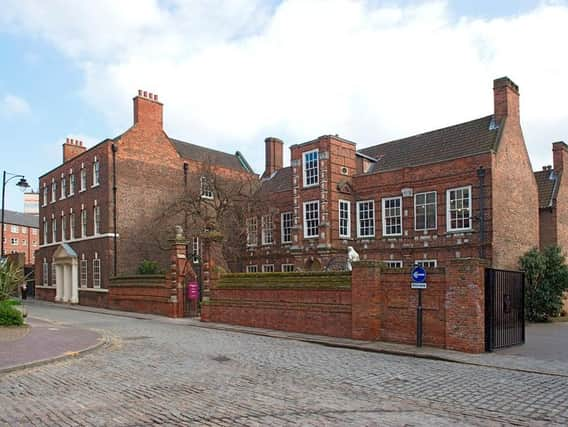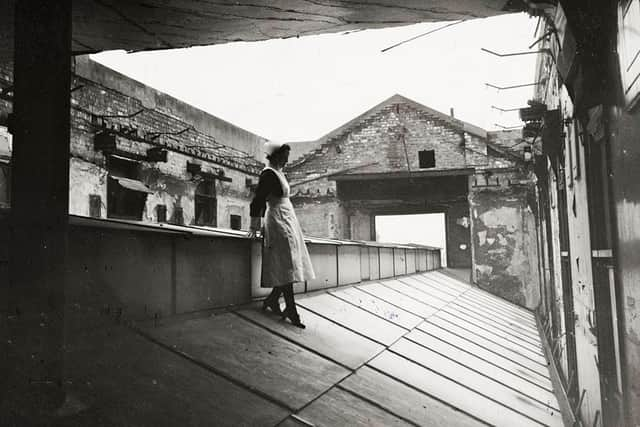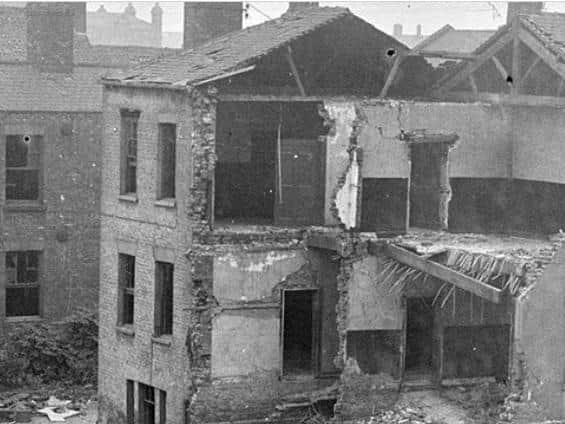The incredible story of how Wilberforce House was saved from destruction in the Hull Blitz


But Wilberforce House, the Georgian townhouse where slave trade abolitionist William Wilberforce was born, was almost lost to history during World War Two, and it was only the timely intervention of a heroic fireman that ensured the 17th-century building still stands today.
Hull suffered badly during the war - its docks made the port city a key target for Nazi bombers, and it was close enough to airfields in occupied Europe for smash-and-grab raids.
Advertisement
Hide AdAdvertisement
Hide AdAround 95 per cent of the city's buildings suffered some sort of bomb damage, with many destroyed completely. There were more than 80 separate air raids, and terrified residents fled into the countryside of the East Riding to camp in the fields overnight rather than risk being caught in the inferno.


Hull's population suffered a further, if necessary, indignity when the government censored coverage of the worst raids in 1941 to preserve national morale. Hull was referred to only as 'a northern town' in news reports.
The attacks of May 7 and 8 saw almost 200 Nazi aircraft strike the city, dropping 29,000 incendiary bombs as well as high explosives. Hull was one huge, raging blaze.
Advertisement
Hide AdAdvertisement
Hide AdThe Old Town, home to narrow alleyways and old mercantile architecture, had no industrial targets but did not escape. Wilberforce House was, and still is, its jewel. It had been a museum since 1906, and when fireman Wilfred Clark arrived, the warehouses on either side were alight and the building was encircled by flames.


He was joined by a local milkman, John Colletta, who was a volunteer with the Auxiliary Fire Service. Colletta, who was 30, arrived at Hull High Street with his pump, but there was no water supply available. He managed to find another hose and sprayed Wilberforce House, dampening its wall to prevent the fire taking hold.
Air Raid Precautions warden Eric Lockwood later said that he had "no doubt that Wilberforce House was saved as a result of" Colletta’s actions which showed "complete disregard for his own safety".
Colletta was awarded the George Medal for his bravery. After the war he donated the medal to Wilberforce House, where it is still on display.
Advertisement
Hide AdAdvertisement
Hide AdHull Royal Infirmary was hit during the same raids, and staff bravely battled the flames after moving patients to the lower floors. They worked through the night with pumps and buckets to save the hospital.


Railway staff also saved Hull Paragon Station and the Royal Station Hotel alongside the volunteer fire crews. A North Eastern Railway manager called Launcelot Ballan rushed to the scene, and found the station's roof on fire. Enemy aircraft were still diving over the station, but the team managed to put out a fire in the third class buffet rooms. Those present on that night believed if it had not been for their efforts, the station and hotel would have been lost.
Among the heroes honoured afterwards was AFS officer Thomas Rumsey, who received the British Empire Medal.
At the end of the Hull Blitz, the death toll stood at 1,200, with 3,000 injured and 152,000 homeless. Only 6,000 of more than 92,000 houses were undamaged and 27 churches were lost.